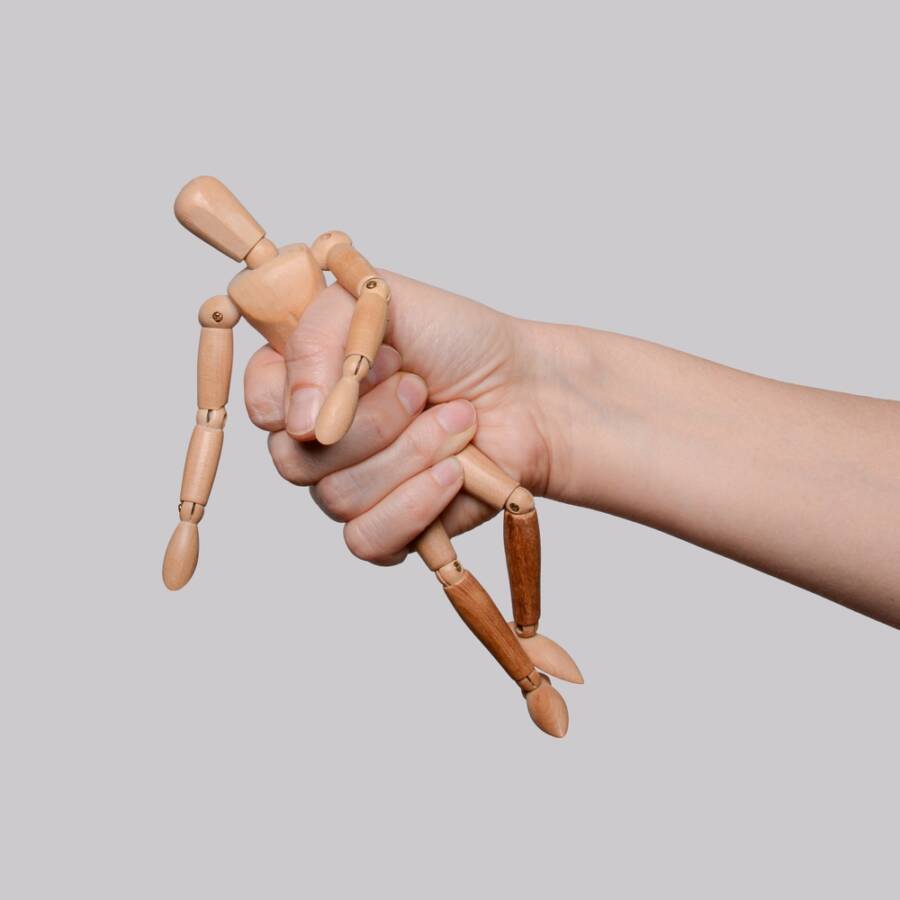It’s incredibly challenging to grow up with narcissistic parents. They can show up as neglectful, emotionally distant, or even abusive, while their children may develop feelings of being inadequate because they struggle to meet the ever-changing expectations of their parents.
“Love is conditional.” This is what they teach their children, leading to future struggles with self-esteem, unhealthy relationships, and even anxiety and depression.
It can be tough to identify a narcissist, as they invest a lot of effort into maintaining an immaculate image and a good reputation. Parents with NPD use manipulative phrases to distort reality, making their children doubt their own perceptions while they look loving and concerned.

These are the signs you can recognize if you’ve been raised by a narcissist:
1. Conditional love
You could’ve felt like it was your fault for not doing something right when you were feeling unloved. Known as conditional love, this translates to receiving affection only when specific conditions are met. In your household, it was probably only about your parents’s emotional needs and self-esteem.
NPD manifests as being love-bombed when you boost your parent’s ego or make them feel special or important. When they feel bad about themselves and the child doesn’t meet their expectations, they are offering silent treatment. They may be cruel and abusive. This is a pattern that has devastating long-term effects.
2. Always be about them
Narcissistic parents always make it about them. This tendency can make you feel unseen, unheard, and invisible as you grow up. Even during your special moments, such as your birthday or graduation, they may have found a way to put themselves in the center of attention.
There are some examples of how they make it about themselves:
- All the conversations are about them.
- Your achievements were all possible thanks to them.
- Even when the topic doesn’t relate to them in any way, they make it personal.
- When you achieve something, they always need to one-up.
3. Your imagination or real facts?
If you have experienced self-doubt it’s very possible to have been raised by narcissistic parents.
They are often skilled in gaslighting, which is an abusive tactic of distorting and twisting the truth in some ways that make a victim question and doubt reality. For a child, this will cause self-doubt and distorted reality issues over time. You may have been wondering if you were imagining things and going crazy at some point.
Some examples are:
- being told you made things up or imagined them;
- being accused of exaggerating the truth;
- attending to a real-time verbal compilation of times when you imagined, lied, or made something up;
- having your words or the whole situation twisted.
4. You had your feelings and needs ignored by the narcissistic parent.
Growing up feeling like it wasn’t appropriate to express your emotions or that you are not safe doing this in front of your parents could be another sign that your parents may suffer from NPD. These children have internalized since a young age the fact that their desires, emotions, and needs are irrelevant, and they often choose to keep them to themselves.
Children of a narcissists may struggle with recognizing their own emotions because they’ve been accustomed to repressing all their needs and inner thoughts. Unfortunately, this can persist into adulthood and reflect uncertainty about their identity, preferences, and feelings, which makes it difficult for them to make decisions.
5. You saw them mistreating others, too.
People with NPD can’t form and maintain healthy relationships because they can’t take into consideration other people’s feelings and needs. This creates a pattern of toxic and broken relationships, especially with close ones. Narcissists who refuse to see that they have some issues generally have a long history of using and disregarding people.
You may have noticed that they:
- were speaking poorly about others;
- were overreacting to every misunderstanding and minor criticism;
- acted aggressive or passive-aggressive towards other people;
- exploited people to cover some needs;
- were jealous or competitive when others owned something they wanted;
- manipulated others or intended guilt trips to achieve their goals.
6. You feared displeasing them.
It’s normal for a child to want to please their parent, but being raised by a narcissistic parent may lead to a constant fear of displeasing them. Because you witnessed how they reacted to others, you may have struggled trying to get their approval, often with little success. It’s difficult to be on the same page with them because their criteria for being pleased can change unpredictably, something that leaves behind stress and anxiety.
Moreover, you could have been punished for displeasing them, and the act varied based on their mood, fostering anticipation anxiety because of being constantly on edge guessing.

7. You were responsible for their reputation.
Because people with NPD rely on validation and the admiration of others, they expect their progeny to help them maintain the image of perfection. Psychiatrists are saying that they make their children an extension of their ego, which includes assistance in preserving their reputation.
Protecting their image may have brought you into these situations:
- They punished you for embarrassing them.
- They often criticized your performance, appearance, or weight.
- You were not allowed to share details about their lives with others.
- You were treated like an accessory for public appearances and even photo ops.
- You’ve been given lectures on how your actions reflect on their image.
- You were expected to make them proud, but not to achieve success on the level that triggers them into feeling inferior.
8. They reached for your constant agreement.
As they have fragile egos, narcissists perceive different ideas, beliefs, and opinions as threats. This results in children having their own choices and emotions denied, and this right does not exist for them. For example, if they dislike someone, you are expected to dislike the person as well.
When they shared an opinion, the only wanted result was for you to agree with them and validate their ego once again. And yes, if it didn’t go as expected, you probably faced the consequences. The repercussions probably came in the form of cold behavior, cruelty, and abuse towards you, all this for using your intuition and knowledge.
9. It’s never their fault.
Deep down, what creates a narcissistic personality is a profound sense of inadequacy, shame, and guilt. Many of the symptoms that unfortunately affect the people around serve to protect the individual from these feelings. They just deflect blame, which translates into denying mistakes, lashing out, and doing everything else needed to maintain their twisted image of being flawless. They rarely admit they did anything wrong and avoid seeing their shortcomings.
Growing up with a narcissist may have brought you a lot of blame for things that were most certainly not your fault. Even more, if you tried to confront them and you knew clearly that it was not your fault, you never got your apology or better treatment.

If you recognize some of these signs and you consider you still need some help, you can always get in contact with a therapist. If you want to find out more about this behavior, there are various podcasts and books on this subject and on how to deal with narcissistic abuse. We know it’s a sensitive subject, and it’s tough to gain control of your life when your power has been constantly taken away by the people you were supposed to trust.
Here, you have a book that guides you into coping with the adult struggles of being raised by a narcissistic parent that you can order via Amazon.
If you found our article useful, you can read another one on Generational Trauma: 9 Effective Ways to Get Off the Hamster Wheel










Leave a Reply